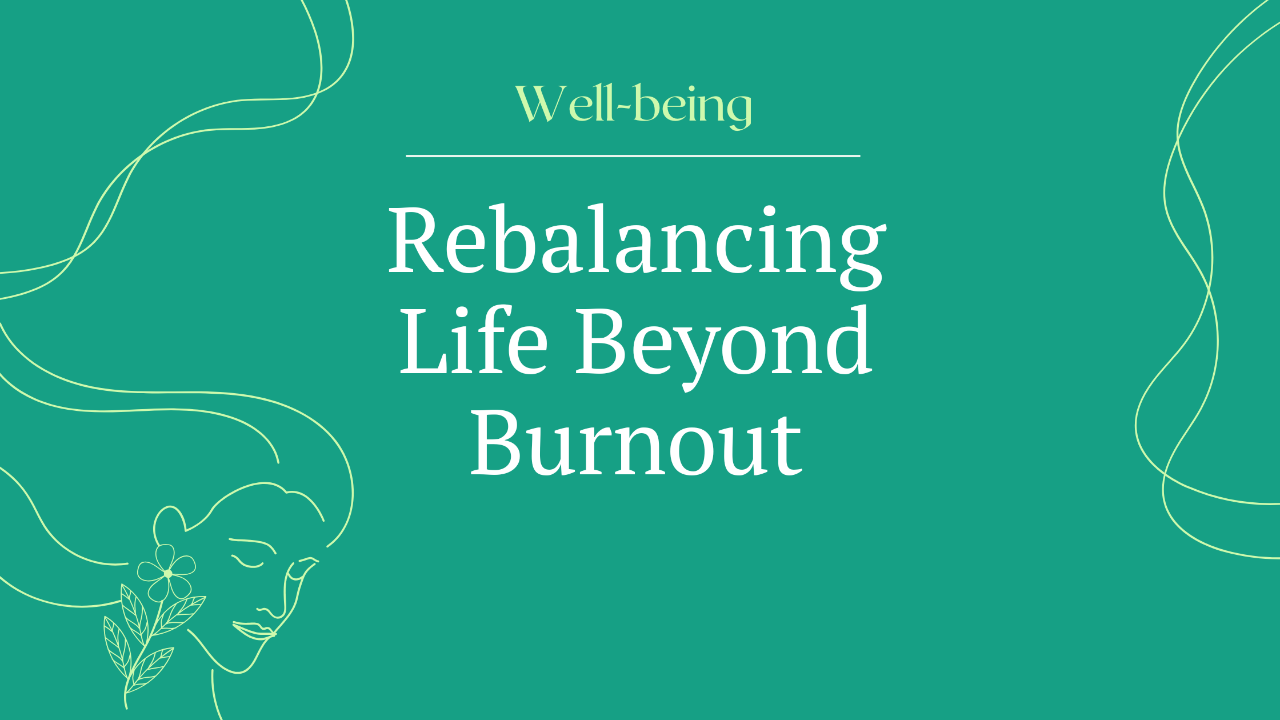✨ What If Burnout Isn’t Just About Work? (The Tool That Helped Me Rebalance My Life)
Oct 16, 2025
When I was deep in burnout, I kept trying to fix the wrong things.
I changed jobs. I took weekends off. I blocked off “self-care time” in my calendar. But something still felt off—like I was living in fragments. Productive at work but disconnected from my body. Social but emotionally depleted. I couldn’t name it at the time, but I was living out of alignment with my whole self.
Then I came across the Duke Wheel of Health. And for the first time, I saw my burnout differently—not just as a work problem, but a whole-life imbalance.
This isn’t a fluffy wellness circle. It’s actually a pretty practical framework used in integrative health coaching, developed by Duke Integrative Medicine. And it helped me reframe how I look at energy, stress, and success—especially as someone who has spent most of her life in high-achieving, high-output environments.
The Core: Mindful Awareness
At the center of the Wheel is mindful awareness—your ability to notice what’s really going on, in your body, mind, emotions, and relationships.
Before you fix anything, you have to feel it. You have to slow down long enough to hear what’s off.
For me, this meant realizing that I wasn’t tired because I worked too much. I was tired because I was ignoring what my body and spirit were trying to tell me for months. I had pushed through gut issues, sleepless nights, and creative numbness—thinking it was just “a phase” or something I could journal away.
The Inner Circle: Self-Care Areas
Surrounding the center are the 7 areas of self-care. Most burnout plans only focus on one—usually “take a break” or “eat better”—but the Wheel helped me see how interconnected everything is.
Here’s what I discovered:
- Movement, Exercise & Rest: I didn’t need a new workout routine—I needed to stop overriding my body. I swapped intense HIIT for yin yoga, walks, and weightlifting on the days I felt strong.
- Nutrition: Skipping meals, drinking too much caffeine, and stress snacking were wrecking my energy. TCM taught me to eat warm, grounding foods and herbal teas that supported my digestion and anxiety.
- Physical Environment: My nervous system calms down in clean, light-filled spaces. I started working near a window, added plants, and decluttered. These small changes made me feel more grounded.
- Relationships & Communication: I had to admit that some of my “friendships” drained me. I started setting boundaries and prioritizing people who left me feeling more connected—not more exhausted.
- Spirituality: This was huge for me. I used to think spirituality meant reading books or meditating for 30 minutes. For me now, it’s breathwork, walking in nature, or even lighting a candle with intention. It’s connection, not performance.
- Mind-Body Connection: Through acupuncture, I learned how over-activation of my amygdala (the stress center of the brain) was keeping me in fight-or-flight. Acupressure, breathwork, and somatic tools helped regulate my nervous system more than any productivity hack ever did.
- Personal and Professional Development: I used to think this meant certifications or career milestones. But now, I ask myself: What do I want to learn because I’m genuinely curious? What kind of work makes me feel purposeful, not just successful?
The Outer Circle: Professional Care
Sometimes you can’t do it alone. I worked with a therapist when my anxiety spiked. An acupuncturist when my sleep was off. And coaches who helped me integrate these changes into daily life.
Professional care isn’t failure—it’s fuel.
How to Use This Framework
If you’re feeling scattered or numb, try this:
- Look at the Wheel of Health (you can find a version online here)
- Pick one area where you feel most out of sync. Not all seven—just one.
- Ask yourself: What small, sustainable change can I make here this week?
That’s it. No massive overhaul. Just a gentle nudge toward balance.
Final Thoughts
Burnout isn’t always about doing too much.
Sometimes, it’s about doing too little of what really nourishes you.
The Duke Wheel of Health gave me a map back to myself—and I hope it can do the same for you.
If you’re curious, try taking a look at your life through this lens. You might be surprised what’s actually throwing you off—and how much relief is waiting once you start listening.
Welcome to Ambition Redesigned! Where purpose meets progress.
Get one actionable tip delivered to your inbox every Monday.


